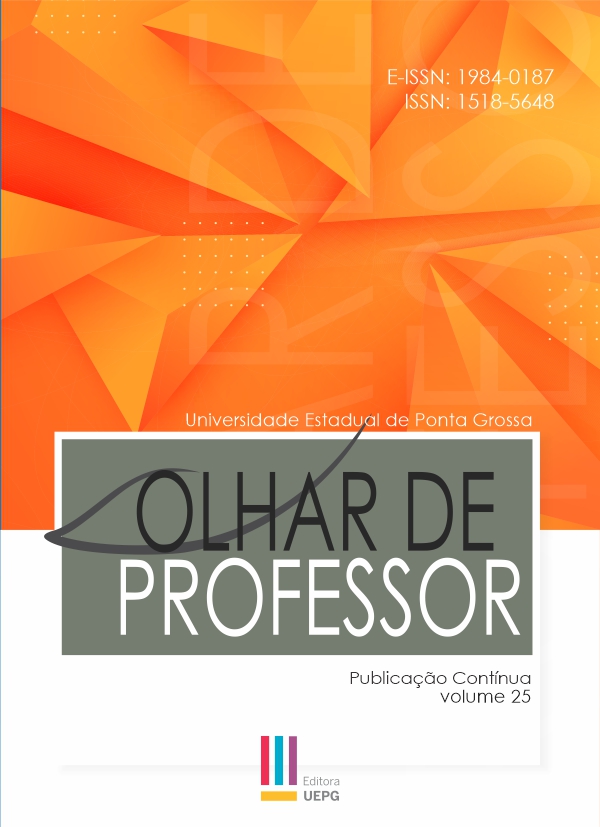Formação inicial de professores e a escrita reflexiva
Conteúdo do artigo principal
Resumo
Neste artigo, discutimos como se dá o processo de reflexão de estagiários sobre a prática docente a partir da constituição de saberes adquiridos pelo aluno-mestre nos contextos escolar e acadêmico. Para isso, buscamos evidenciar na perspectiva de Smyth (1991), o percurso dos movimentos reflexivos realizados pelo futuro professor durante a produção de textos escritos no Estágio Supervisionado Curricular. Os fragmentos textuais analisados foram extraídos de relatórios de estágio supervisionado e de diários de campo, disponibilizados para pesquisa no Centro Interdisciplinar da Memória dos Estágios Supervisionados, da Universidade Federal do Tocantins. Essa incursão teórico-analítica de natureza documental aponta que os acadêmicos assumem uma postura reflexiva à medida que registram percepções que integram o conjunto de informações que contextualizam o contato com a escola, com os professores, com os alunos da Educação Básica e com o ambiente de ensino na universidade.
Palavras-chave: Estágio Supervisionado Curricular; Formação inicial do professor; Escrita reflexiva.
Downloads
Detalhes do artigo
Autores que publicam nesta revista concordam com os seguintes termos:
a) Os autores mantêm os direitos autorais e concedem à revista o direito de primeira publicação, com o trabalho simultaneamente licenciado sob a Creative Commons Attribution License Atribuição 4.0 Internacional (CC BY 4.0) que permite o compartilhamento do trabalho com reconhecimento da sua autoria e publicação inicial nesta revista.
b) Os autores são autorizados a assinarem contratos adicionais, separadamente, para distribuição não exclusiva da versão publicada nesta revista (por exemplo, em repositórios institucionais ou capítulos de livros), com reconhecimento da sua autoria e publicação inicial nesta revista).
c) Os autores são estimulados a publicar e distribuir a versão onlline do artigo (por exemplo, em repositórios institucionais ou em sua página pessoal), considerando que isso pode gerar alterações produtivas, bem como aumentar o impacto e as citações do artigo publicado.
d) Esta revista proporciona acesso público a todo o seu conteúdo, uma vez que isso permite uma maior visibilidade e alcance dos artigos e resenhas publicados. Para maiores informações sobre esta abordagem, visite Public Knowledge Project, projeto que desenvolveu este sistema para melhorar a qualidade acadêmica e pública da pesquisa, distribuindo o OJS assim como outros softwares de apoio ao sistema de publicação de acesso público a fontes acadêmicas.
e) Os nomes e endereços de e-mail neste site serão usados exclusivamente para os propósitos da revista, não estando disponíveis para outros fins.
______________

Este obra está licenciado com uma Licença Creative Commons Atribuição 4.0 Internacional.





